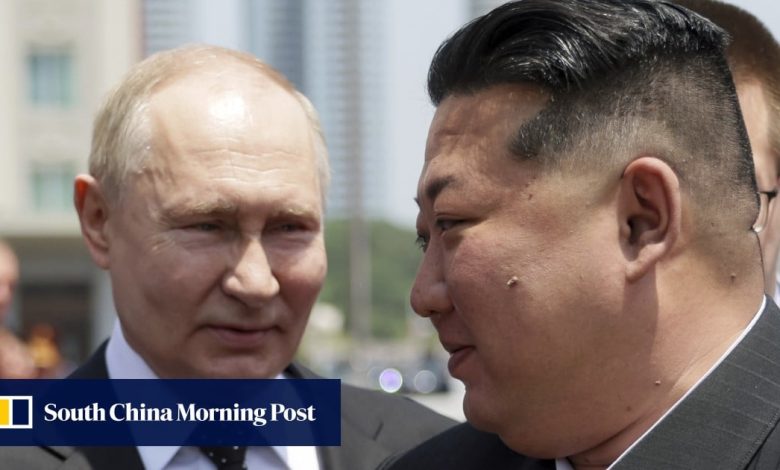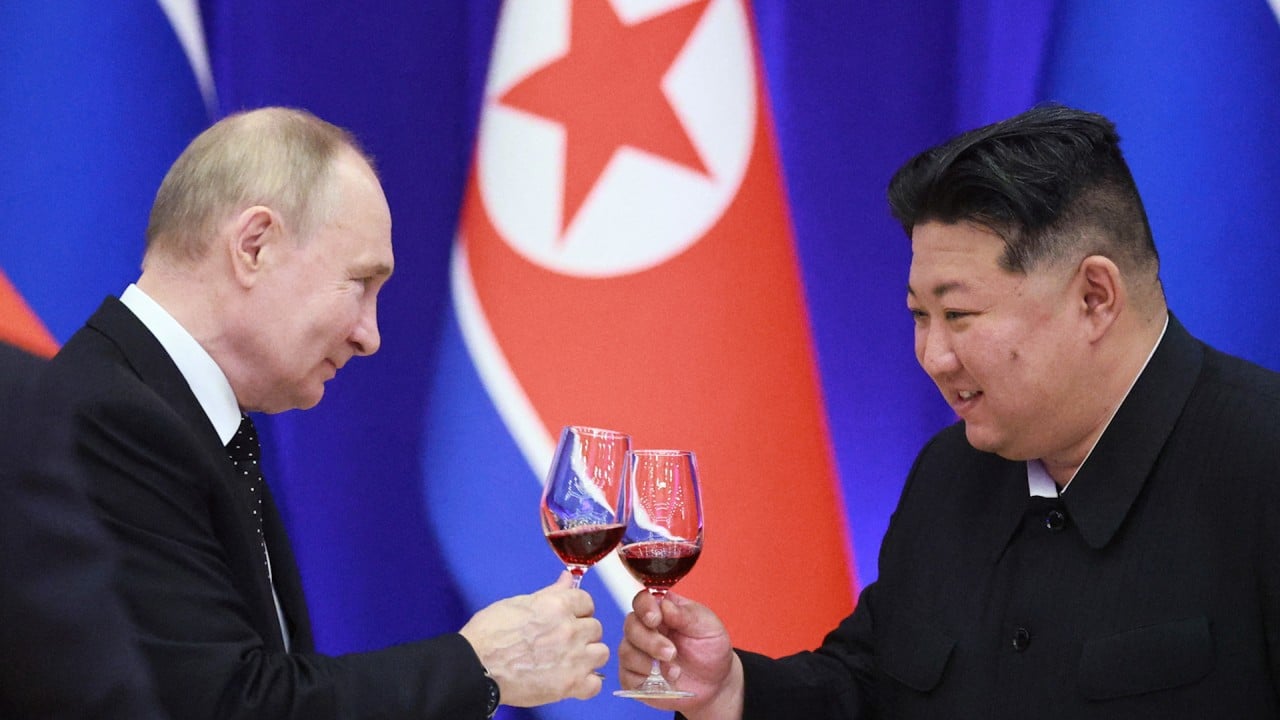North Korea’s economy rebounds as Russia ties fuel arms trade

North Korea’s economy roared back to life as arms transfers with Russia provided support for Kim Jong-un’s regime, allowing the leader to shun diplomacy as he ramped up his threats against the United States and South Korea.
North Korea’s gross domestic product expanded 3.1 per cent in 2023 from a year earlier, ending a three-year streak of contractions and posting the biggest growth since 2016, according to estimates published Friday by South Korea’s central bank.
The growth comes as Kim has drawn closer to Moscow, ignored US calls to return to disarmament talks and rolled back border restrictions imposed at the start of the Covid-19 pandemic that slammed the breaks on trade for his sanctions-hit economy.
The heavy and chemical industries led the economic growth, expanding by 8.1 per cent from a year earlier, the Bank of Korea said.
While the report didn’t say whether those industries engaged in any arms manufacturing, it noted an increase in the production of primary metals, which may include iron, steel, copper, nickel and aluminium.
The BOK annually reports on North Korea’s economy based on data it collects from a variety of institutions, and its numbers are considered some of the best analysis of activity undertaken by its secretive neighbour.
After Russia’s full-scale invasion of Ukraine more than two years ago, the US and South Korea have accused Kim of sending millions of rounds of munitions and scores of ballistic missiles to President Vladimir Putin to help with his grinding war on his neighbour.
Moscow and Pyongyang have denied the accusations despite evidence showing arms shipments taking place. While the exact value of the transfers is not a part of the figures from the BOK, North Korea has received materials for its economy and food staples from Russia that have helped Kim stabilise prices and likely bolstered manufacturing, South Korean officials have said.
Kim pledged to “unconditionally support” Russia in its invasion of Ukraine when he hosted Putin in Pyongyang last month for the president’s first visit to North Korea in 24 years. The trip deepened ties amid US concerns about arms supplies to the Kremlin’s war machine.
While North Korea’s economy posts one of the biggest expansions since Kim took over the regime upon the death of his father Kim Jong-il in 2011, the country remains one of the most impoverished in the world with UN agencies saying a large share of its population suffers from shortages of food, medicine and other basic necessities.
Gross national income, which measures the total wealth earned by individuals and businesses in a nation, amounted to 40.9 trillion won (US$29.5 billion) in North Korea last year, equalling a 60th of that in South Korea, the BOK said. GNI per capita stood at just short of 1.6 million won last year, amounting to a 30th of that among South Koreans.
Kim Jong-un earlier this month said North Korea’s economy is on a “clear upturn” as his state claimed a successful test of a new tactical ballistic missile that could be sent to Russia in exchange for aid to help his regime.
Kim, meanwhile, has been spending heavily on his missile programme. Missile tests last year cost about US$1 billion, South Korean Defence Minister Shin Won-sik said in an interview with Bloomberg News last month.
“North Korea is ignoring its people’s hardships to carry out missile provocations,” Shin said. “The money is enough to cover North Korea’s food shortages for a year.”






